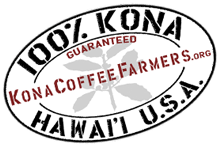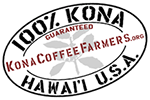Instructions for Taking and Sending a Tissue or a Soil Sample- Perry Lab
Perry Agricultural Lab Sample Report
Soil Sampling Procedure
In a coffee orchard pick 3 to 4 trees that will be your sampling sites representing the area of interest. Very good or very poor areas should be sampled separately. The flats, if they exist, should be sampled separately from the sloping area.
The trees should be marked so that you can sample the same trees another year for comparison. At each tree collect soil from the surface down to 5 inches at four locations around the tree. These locations should be at the edge of the tree’s expanse at the 10 o’clock position, half way in approaching the trunk; and again at the 2 o’clock position, and half way in.
Often stones must be moved and the mixture of peat and small rock is collected as the sample. Many coffee growers say they don’t have any soil, not really true. The soil from all four trees can be mixed together. Then lay the soil out on newspaper to dry. The sample can then be mixed and sieved through a child’s plastic beach toy sieve. This removes the pebbles and material insignificant to the analysis. We only need one cup of soil for the analysis.
The sample can be placed in a strong zip lock baggie and the baggie labeled with a permanent marker. Place a paper with the name and address of the farm, email address, sample name, crop (coffee, macadamia etc) and if the growing practice is organic or conventional. The card board flat rate envelopes at the post office are a very good way to send several samples. If you have several samples, place the group in baggies in a gallon size bag and seal.
Place the Soil Import Label PPQ FORM 550, available from the Department of Agriculture on the outside of the envelope and mail to Perry Agricultural Laboratory, Inc., P.O. Box 418, Bowling Green MO 63334 or email Perry here.
Perry Agricultural Laboratory, Inc.
P.O. Box 418
Bowling Green MO 63334
Perry Agricultural Laboratory, Inc has been performing soil test for growers in Hawaii since 1987. They make every effort to have the results of their test understood by their clients and a clear recommendation made to improve the soil balance and health. They work with conventional and organic growers. The charge for their complete test is $25.


